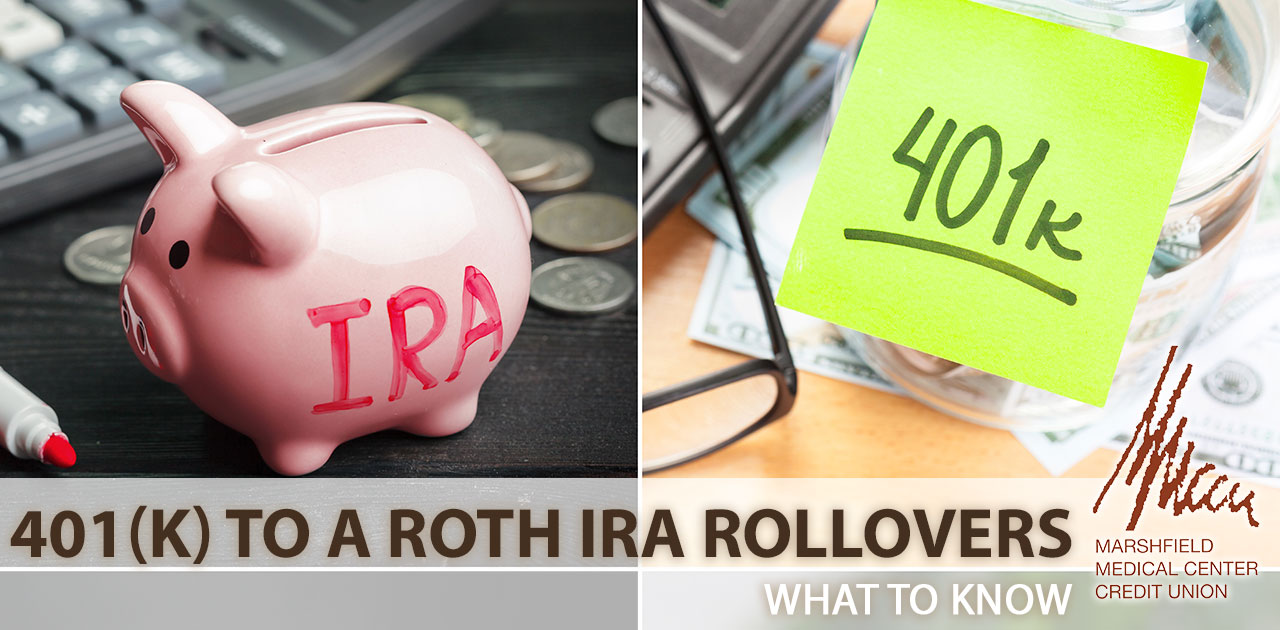Rollovers from a 401(k) plan to an IRA are becoming increasingly popular among people looking to manage their retirement savings more effectively. While there are many advantages to this type of rollover, there are also some disadvantages that need to be considered before making the move.
“It’s important to take a look at the pros and cons of rollovers from a 401(k) plan to an IRA to help you make an informed decision,” said MMCCU President David Murphy. “While we can assist in rolling over funds from your retirement plan to an IRA, we advise you speak with a financial advisor to understand the tax implications of making such a decision. You want to avoid a simple mistake that could end up costing you a large percentage of your retirement funds.”
Pros of a 401(k) to IRA Rollover:
- Greater Investment Options: IRAs generally offer a much wider range of investment options compared to 401(k) plans. This allows you to choose from a variety of investment products and tailor your portfolio to meet your specific investment goals and risk tolerance.
- More Control: When you roll over your 401(k) to an IRA, you have more control over your retirement savings. This means that you can make investment decisions, choose the investments you want to invest in, and manage your portfolio as you see fit.
- Lower Fees: IRAs often have lower fees compared to 401(k) plans, especially when it comes to administrative fees. This can help you to maximize your returns and keep more of your hard-earned money.
- Access to Professional Advice: Many IRAs offer access to professional financial advisors who can provide guidance on investment choices and help you create a retirement savings plan that is tailored to your specific needs.
- Local Servicer: Many companies use a national provider to administer their 401(k) plan, which may not be an issue when you’re working as you work directly with your HR department. However, upon retiring, you lose the local connection and may have to work with someone nationally, who may or may not have your best interest in mind. Moving your 401(k) to a local financial institution or advisor gives you someone who is more readily available to meet your needs or answer questions you may have.
Cons of a 401(k) to IRA Rollover:
- Tax Implications: Rollovers from a 401(k) to an IRA are considered a taxable event, which means that you will have to pay taxes on the amount you roll over. This can be a significant drawback, especially if you have a large 401(k) balance.
- Loss of Employer Contributions: If your employer has been matching your contributions to your 401(k), you may lose that benefit when you roll over to an IRA. This can impact the growth of your retirement savings over time.
- Administrative Hassles: The process of rolling over your 401(k) to an IRA can be complicated and time-consuming, and there is always a risk of making a mistake that could result in penalties or taxes.
In conclusion, rollovers from a 401(k) plan to an IRA can be a great way to manage your retirement savings more effectively and maximize your returns. However, before making the move, it’s important to carefully consider the pros and cons and determine if it’s the right decision for you. If you’re unsure, it may be helpful to seek the advice of a financial advisor who can help guide you through the process.
To learn more, contact MMCCU today.

